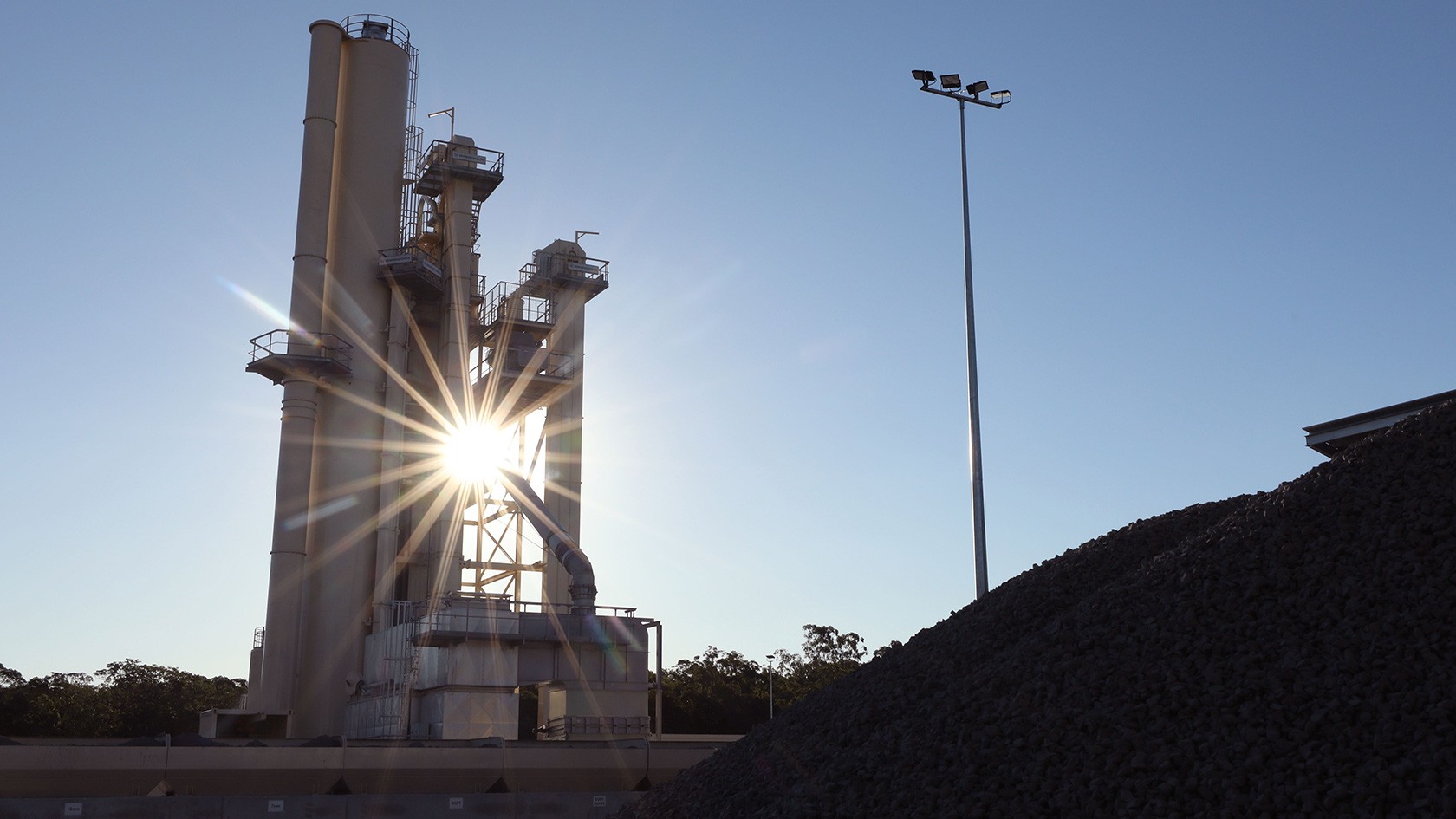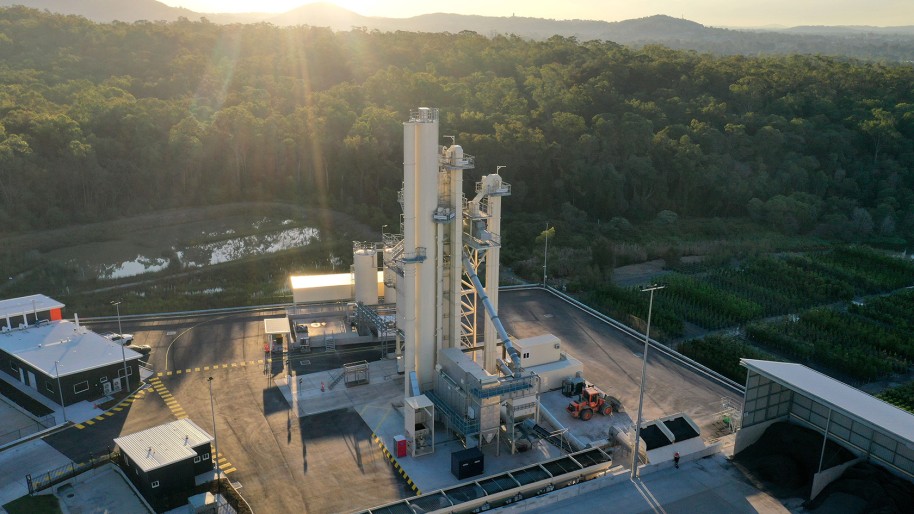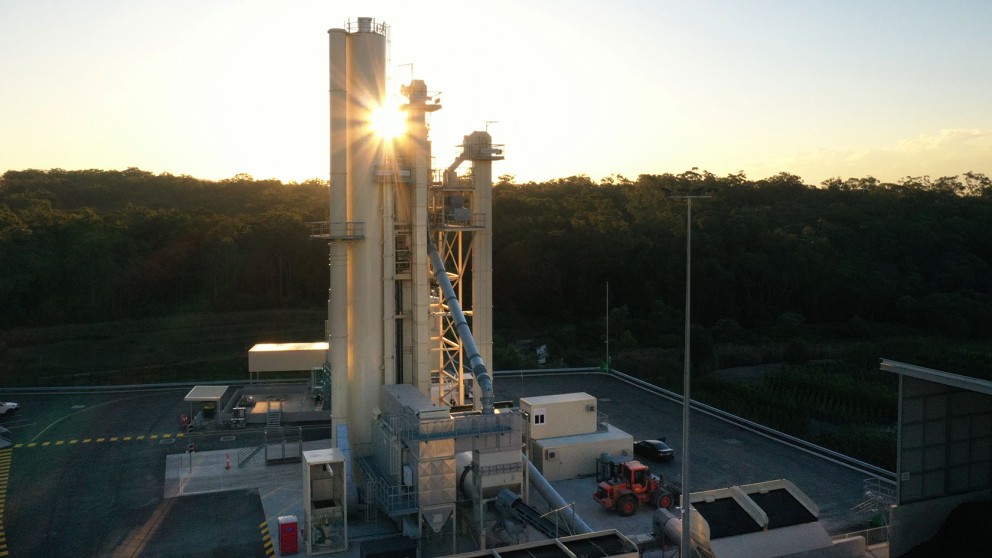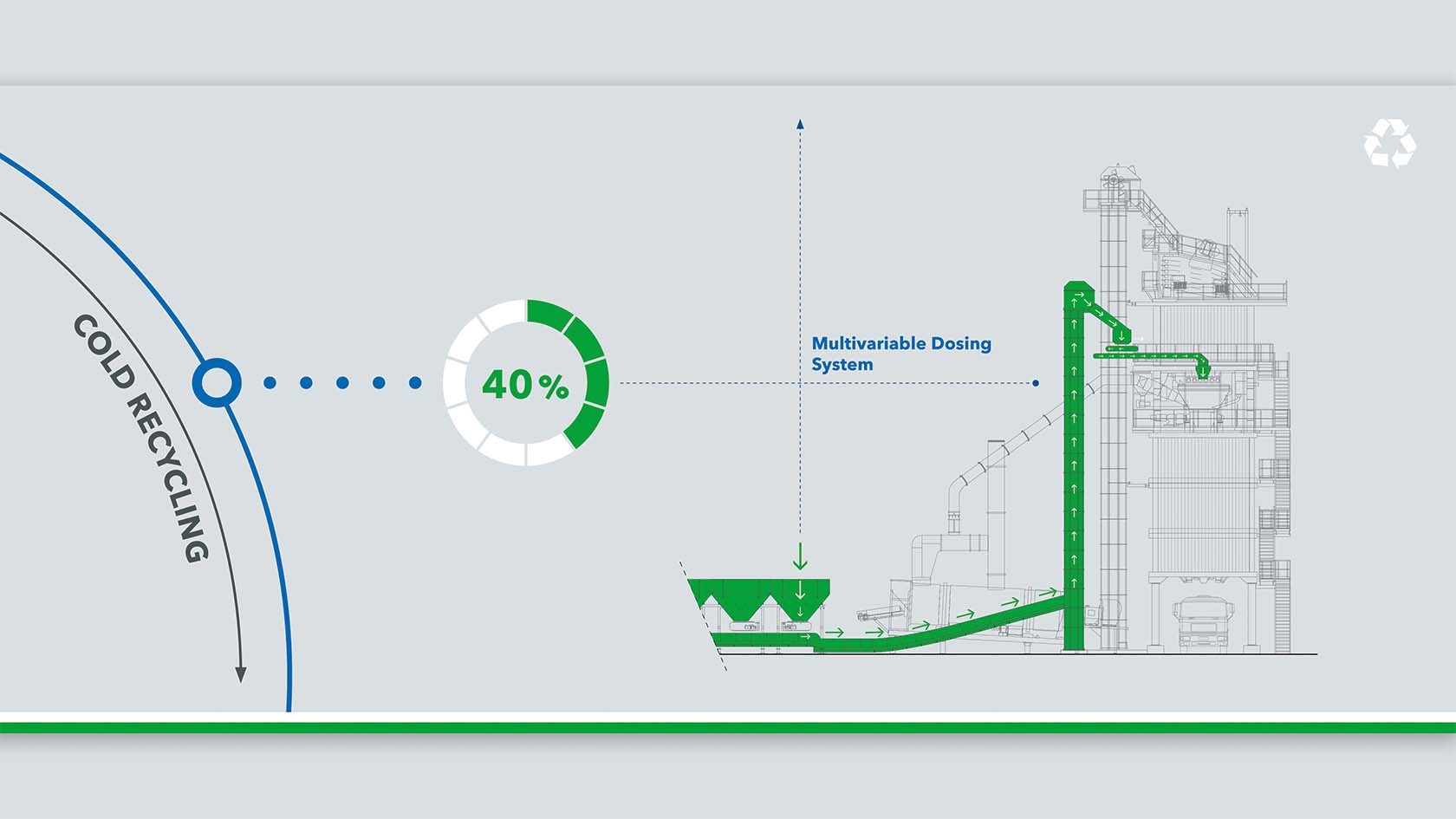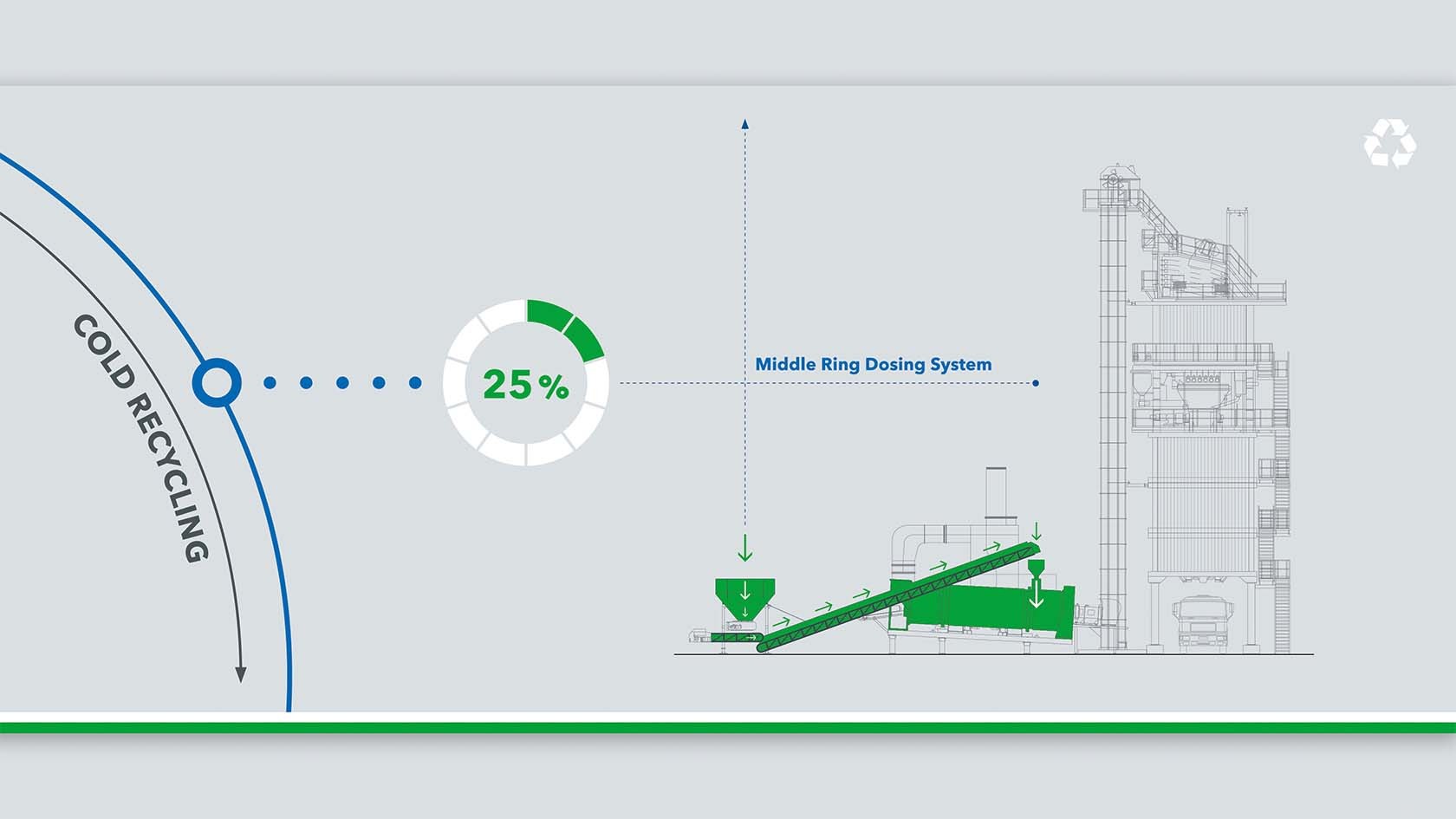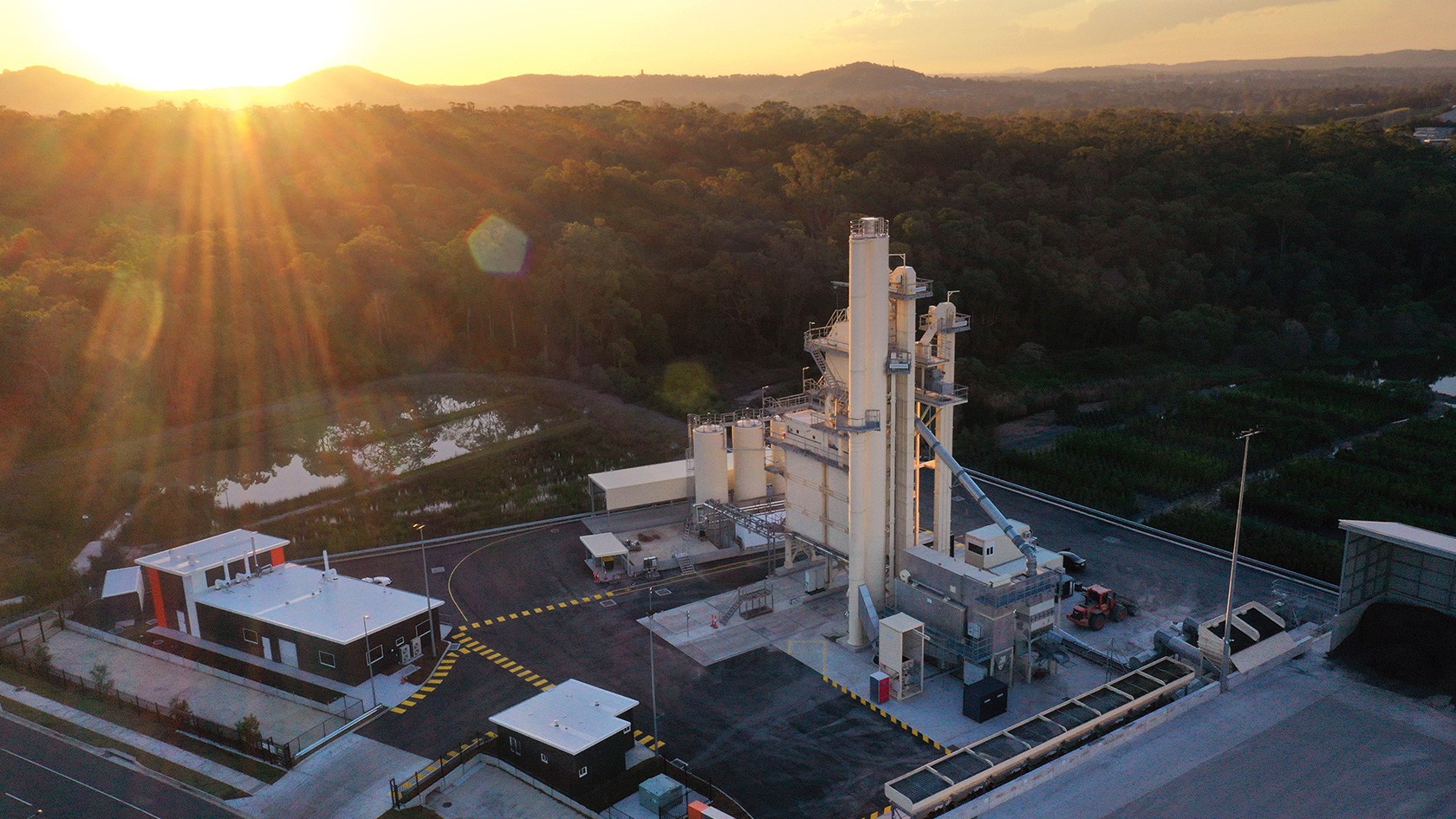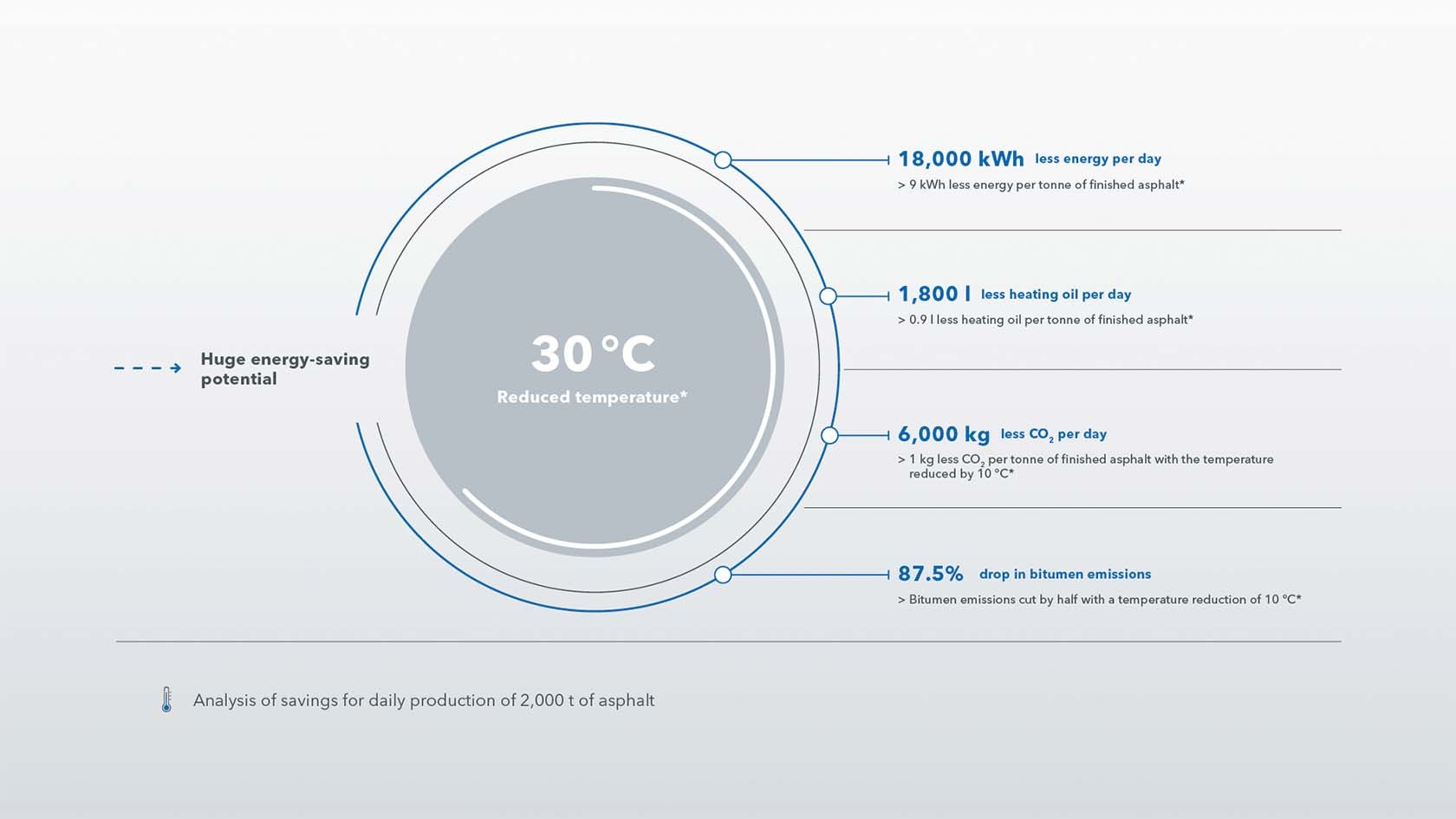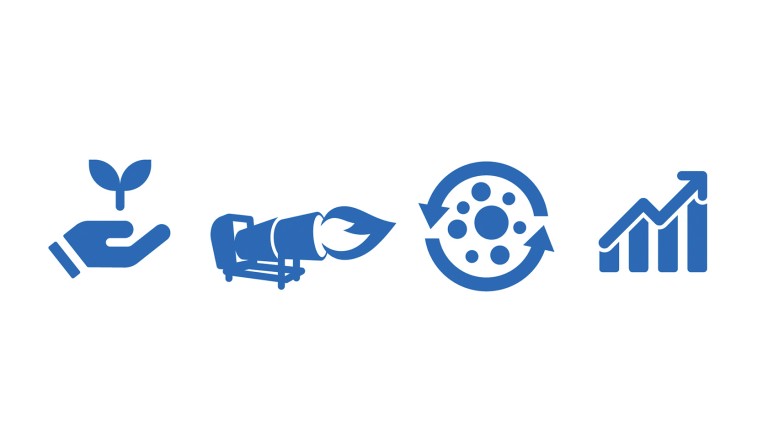10 cold feed hoppers and four bitumen tanks for many different recipes
COLAS was looking in particular for a plant that offered great flexibility for asphalt recipes. “Our client has stringent quality requirements for their asphaltic mixture. Based on where the asphalt will be laid, different proportions of RAP are allowed to be added. Our client also requires different types of bitumen, depending on the specific recipe,” comments Cameron Nisbett, CEO COLAS Queensland. To meet these needs, the TBA 4000 at COLAS in Yatala offers a number of plant options. As one example, the plant has eight cold feed hoppers for virgin mineral in various particle sizes. The recycled material is also provided in various particle sizes by two other cold feed hoppers. When it comes to bitumen, COLAS has a choice of four types, allowing the use of specialized recipes. The bitumen tanks needed for this are very energy efficient – something Benninghoven has achieved by using electric heaters combined with insulation that is no less than 300 mm thick.
“Together with the Recipe Generator, this plant specification lets us meet any set of requirements that our clients are likely to specify,” explains Thierry Dulac, Plant and Fleet Manager at COLAS Australia Group. The Recipe Generator is just one of the many highlights in Benninghoven’s user-friendly BLS 3000 control system. The mixing supervisor simply picks a recipe stored in the system and all of the parameters across the plant are set automatically for the asphaltic mixture to be produced.
Benninghoven’s Recipe Generator is also a great help when it comes to feeding in recycled material. This software option in the Benninghoven BLS 3000 control unit lets operators change the recycling rate on the fly. If a job has been started with a virgin mineral proportion at 100%, for example, the mixing supervisor can use a sliding control to then add RAP at any time. This virgin mineral proportion, along with all the other ingredients in the recipe like bitumen, filler, etc. are adjusted automatically while maintaining the asphaltic mixture’s grading curve – without stopping production or changing the recipe, and while keeping temperature and quality constant.
A total of ten cold feed hoppers (bottom of photo) and four bitumen tanks: the TBA 4000 at COLAS can handle many different types of asphalt recipes.
